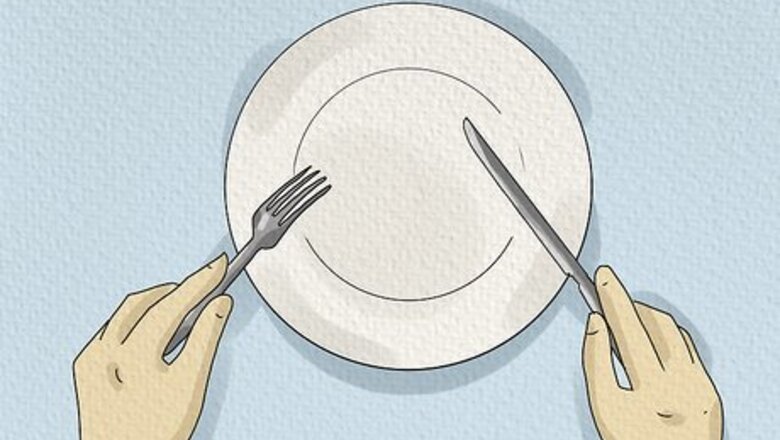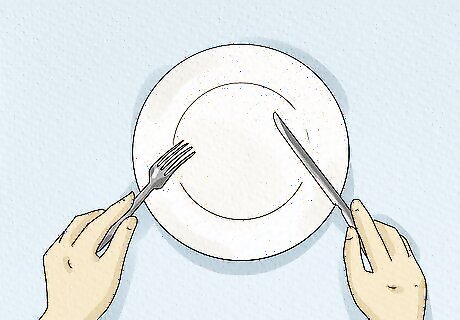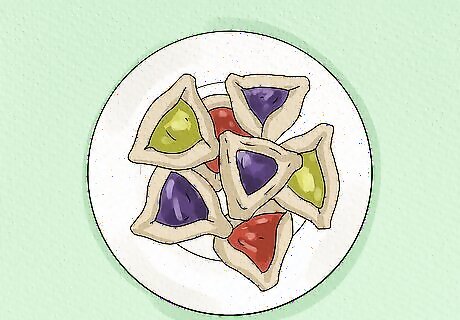
views
Purim 2023 lasts from the evening of Monday the 6th of March to the evening of Tuesday the 7th of March.[1]
X
Trustworthy Source
Chabad.org
Online resource for information related to Chabad-Lubavitch and Jewish culture
Go to source
Engaging in Activities

Fast. If you are religious, fast on the day preceding Purim. This is known as the Fast of Esther. It is observed by religious Jews, and it commemorates the three-day fast Queen Esther and the Jews undertook prior to speaking to the king about saving the Jews in the Purim story. The fast ends at nightfall, though if Purim falls on a Saturday, the fast is observed on the Thursday before. Fast in a healthy manner. While preparing for the fast, you should avoid consuming junk foods, alcohol, and coffee. Refrain from chewing gum as well, since it may lead to discomfort due to heartburn. Try to drink as much as water as possible. You should stay hydrated, as the human body should not go many hours without drinking water. Give yourself a few days after your fast before you eat a big meal. Pacing yourself can make the return to eating food more palatable.

Hear the Megillah (Book of Esther) read aloud. This is read once at night and once during the day of Purim. The reading usually takes less than an hour to finish. When the name Haman is mentioned, it is customary to make a lot of noise to "blot" out the evil name.

Give gifts (Matanot La'evyonim) to the poor. The requirement is to give at least two gifts to the poor. These gifts must be generous, and they should be given during the daytime. Synagogues often take money as well which they then use to provide services or to help out those who need assistance in the community. Some common gifts are money, drink, and food. If you know of any individuals in your community who could use an extra hand, you may approach them and say: "I am celebrating Purim and wondered if you would like this food basket." You could also say: "It must be cold at night - would you like this blanket?"

Give food to friends. An essential part of celebrating Purim includes giving prepared food to your Jewish friends. This could be as simple as baking cookies and gifting them to your friends. It is customary to deliver the food through a third person. You can ask your relatives or children to deliver them. However, you can also do this personally if need be. This should be done during the day.
Enjoying Festivities

Cook traditional foods. For example, you can try to Make Hamantaschen. Hamantaschen is a delicious pastry with three corners. According to myth, Haman, the main antagonist in the Book of Esther, donned a hat with three corners. This dish serves as a mockery to Haman's arrogance. Kreplach, which is a dumpling soup, is also served on Purim. Some argue that the dumpling's dough symbolizes “knowledge” and the meat inside represents “emotion.”

Play Purim music. Throw on some tunes and enjoy the joyful atmosphere. You can find Purim music online by searching for Purim songs on YouTube or Spotify. Songs like Chag Purim or Shoshanas Yaakov have joyful lyrics about the holiday of Purim and are classic choices.

Dress up. Dressing up on Purim isn't just for children. Adults can dress up on Purim too - in fact, many Purim parties are masquerade parties. The reason for this custom is to show that God's hands were behind the Purim miracle but were masked as natural events. Therefore, create costumes based on celebrated characters in the story. For example, you or your child could dress up as the Biblical figures Mordecai or Esther. Costumes don't need to be explicitly religious. You may want to dress up as a superhero or a movie character. Consider the specific event you'll be attending and use your best judgment to determine whether this is a good choice.
Hosting a Meal

Fill your house with decorations. You can put up your usual party decorations, so feel free to throw up bright, colorful streamers and balloons. You can also lay tzedakah boxes, or boxes for charity donations, on the table. After the event, you can donate the money collected to your synagogue or to a local charity you support. If you have children, you could give them a decorating task: to draw hamantaschen, cut out the drawings, and tape them with washi tape around the house.

Invite your friends and family. This is a holiday where everyone can participate. After all, Purim is a celebration of community. Don't be afraid to invite people who may not share your faith, especially if the focus of the event is not religious but solely celebratory. You may want to give them a few days' notice. If you are planning a large family get-together, then you should send out invites a few weeks in advance. Briefly explain the holiday to your guests. They should know it is religious in nature. At the same time, you may choose to tone down the religious elements and focus instead on celebrating the history of the Jewish people, in which case certain guests may feel more comfortable attending. Purim is a time for education as well as remembrance.

Serve food and wine. As it is a joyous occasion, dishes, such as the above mentioned hamantaschen and kreplach, and wines can be served. The meal should begin in the afternoon (at around 5 or 6pm) and be completed by nightfall. After the meal, you might invite guests to share their favorite Purim memories or stories.

















Comments
0 comment